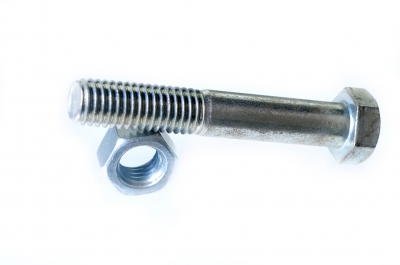Are your boiler’s radiators not heating? There could be several things that might be causing this.

Radiators Not Heating
Depending on which radiator (s) is not working, it could be caused by a pump failure, or failure of the motor in the motorised valve. It could also be caused by a broken boiler thermostat or timer, or even airpockets in the system.
Here’s what you should do if:
- Boiler is hot, but radiators are cool:
The problem here could be the pipework. Overtime, pipes and radiators corrode due to water inside them. This can leave sludge deposits in certain parts of the system, preventing the free flow of hot water to the radiators. Chemically cleaning or flushing the system will solve this issue.
A defective pump could also be causing the problem. Check the pump, located near or inside the boiler, if it is running. If it is not working,try freeing anything jammed inside it by lightly tapping it with a heavy object such as a hammer. You can also remove the cover (the power must be off), and check for a large screw at the center of the pump housing. If the large screw has been removed, you should see a second screw underneath. Turn the screw to release any minor jams in the pump. If you feel that the screw is moving freely, reassemble the pump and try again.
There could also be air in the system that is causing trouble. Airlocks can be fixed by bleeding the radiators. If bleeding does not fix the problem, there may be a blockage in the pump. It will have to be removed for cleaning or replacement. Note that this is best done by a professional engineer.
- Radiators cold at the top (warm at the bottom)
If the boiler radiators not heating only at the top, system may be low on water, hence the warm water stays at the bottom radiators. This could be caused by an empty expansion tank that is due to a faulty ball valve. Check that the valve is working and the tank is full.
- Radiators cold at the bottom (warm at the top)
Radiators not heating at the bottom may be caused by sludge build up in the pipework. Disconnecting the radiator and flushing it with water will remedy the problem. Sludge removal liquids are also available at your local DIY stores. You can add this through the feed and expansion tank so that it will flow around the system and remove the sludge.
- Radiators not heating in one part of the house
The zone valve, a device that controls the water flow to different parts of the system, may be defective or not properly set. A zone valve is usually used in bigger properties. Check the valve and make sure the settings are correct. You may need the help of a qualified engineer to do this.
- One of the radiators not heating
The radiator valve may be faulty. If the valve is thermostatic, you can turn it to the highest temperature. If the valve is a conventional lock shield, you can adjust the setting until you see changes happen. If either of this does not work, call a professional.
- Radiator farthest from the boiler is not heating
The central heating system is not balanced. The lockshield valve is key for balance adjustment. Once it is installed and set, it should not be altered unless there are changes to the pipework or the radiators.
- All radiators not heating
Is the boiler working? Make sure that the gas burners are ignited. For combi boilers, the pressure on the dial must be with in the range specified in the manual. Air could also be trapped in line, or in the radiator. You can bleed the air out by opening the bleed valve. When water squirts from the radiator, close the valve. The zone valve or circulator could also be faulty. Check both for proper operation.
Remember that it is always best to have a registered engineer to the job. Call RJ Gas Heating Services if the problem with your boiler is radiators not heating.








